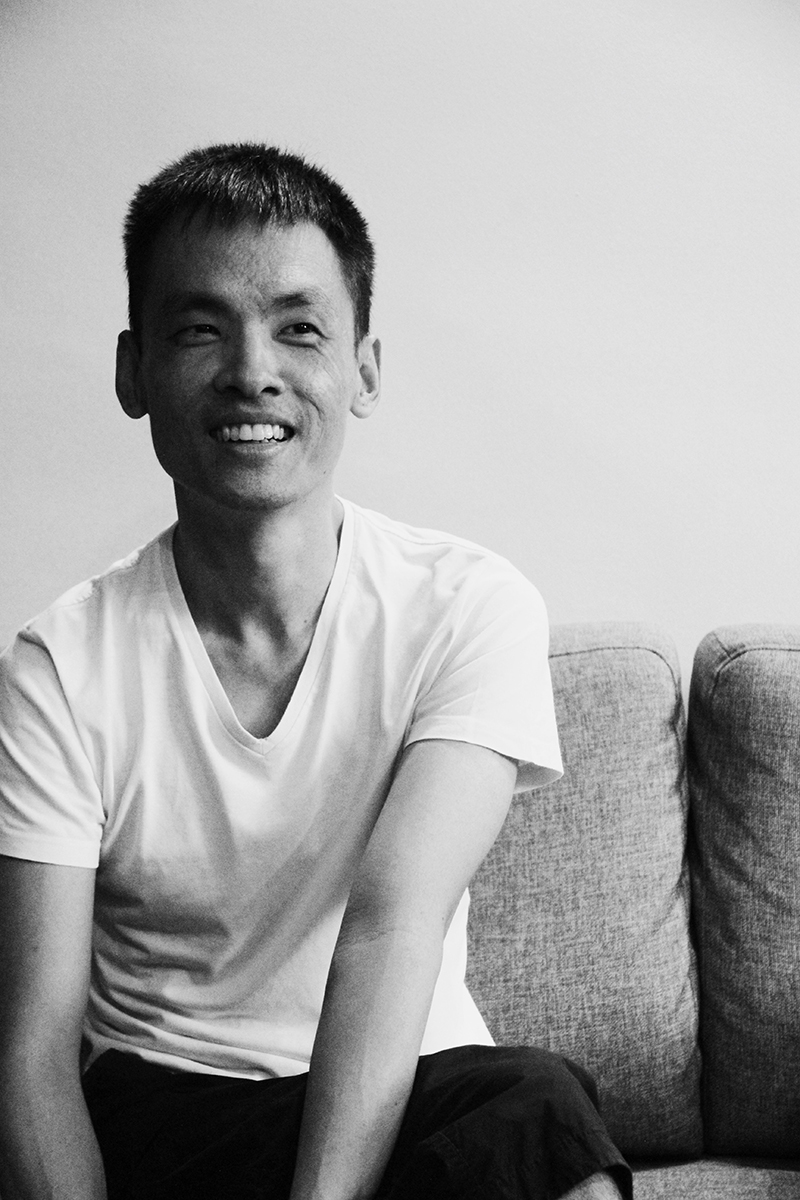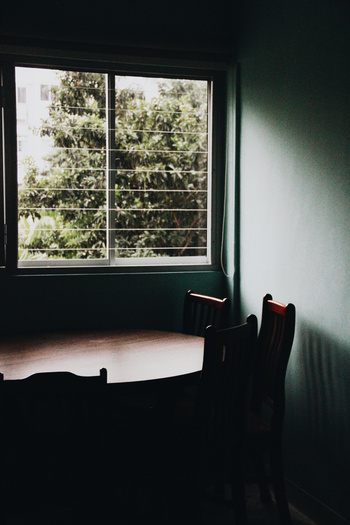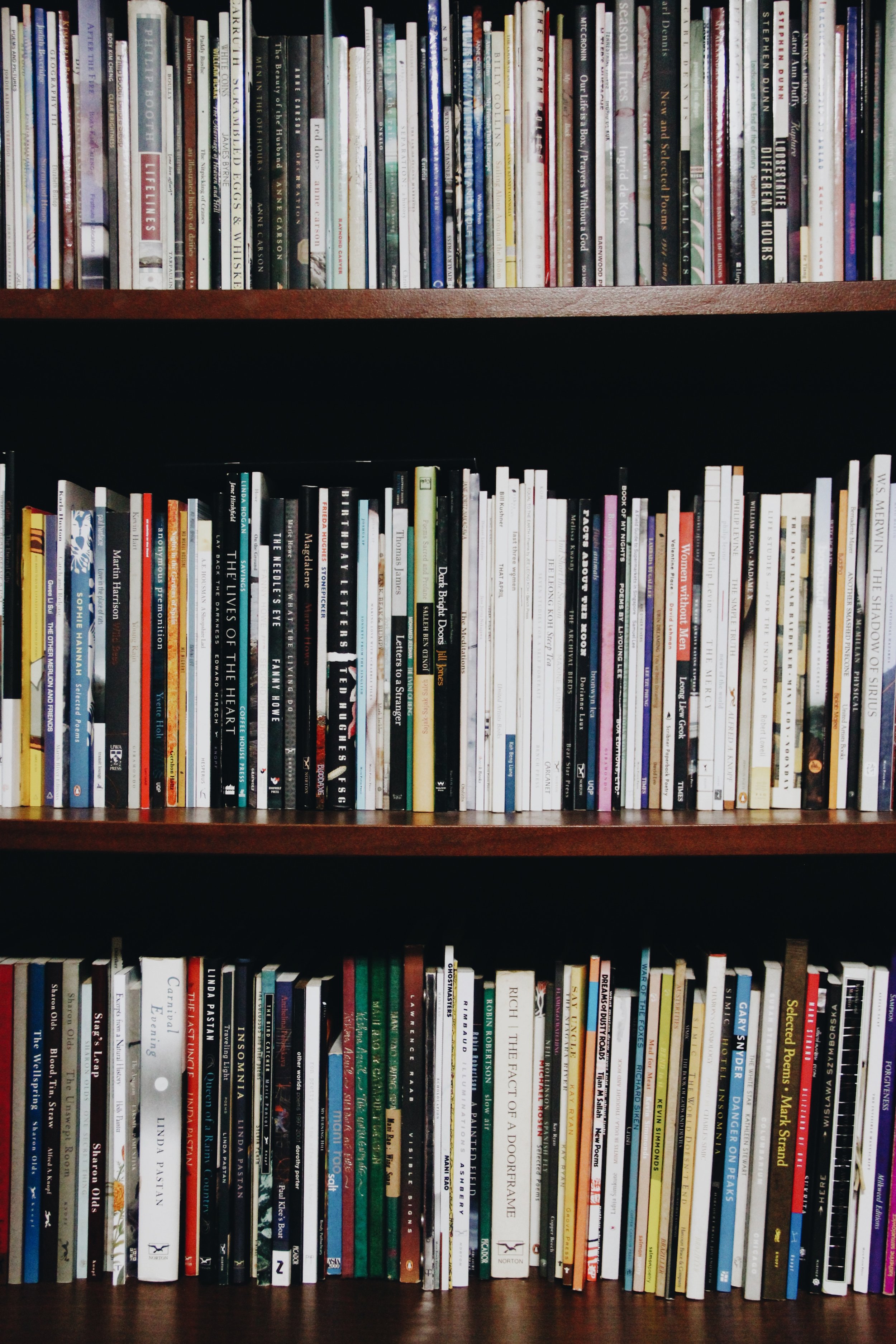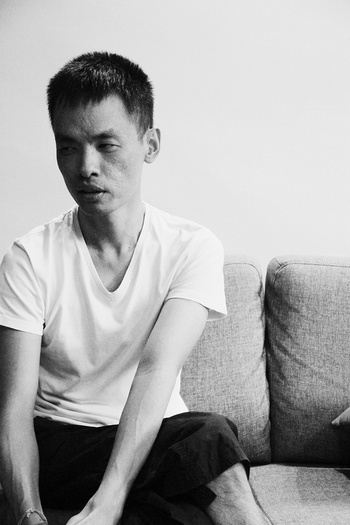A collection of conversations with a diverse range of local and regional creatives
Library Conversations for SGABF2020
We examined the systems that support art book making and independent art book publishing in Singapore and the region.
A Closer Look for SGABF2019
We gathered perspectives on our zine and art book culture, and discuss the possibilities of self-publishing today.
21 Creatives for SGABF2018
We sat down with 21 creatives of various disciplines to learn about their practice and asked each of them to fill up a blank page in a notebook.
CYRIL WONG

Photo Credit: SGABF
SGABF: You seem to express different themes across your poetry collections. Is that a way of stretching yourself and exploring new ways of expression?
Cyril Wong (CW): I think my collections are defined by what concerns me at the time. So the themes have been decided for me—whether it be about loneliness, family, sex, or heartbreak—I do not decide the themes for myself.
I liked Tilting Our Plates to Catch the Light most of all for purely artistic reasons. I was very ambitious in layering three different types of narrative in a poetry collection, but I think I pulled it off quite nicely for someone who was doing it for the first time.
SGABF: You mentioned in some interviews about how poetry has helped you through some difficult times in your life. Does your recent decision to stop publishing mean that you have grown to stop relying on poetry, or are you seeking that comfort through other mediums?
CW: A bit here, a bit there. I draw a line between writing and publishing. Writing will always happen, while I publish because I realised with the first few books of my life that they were making a kind of impact on people that I did not expect.
But lately, I am no longer interested in the publishing side of things and if people want to read me, all my main concerns are in books that are already out there. I do not publish for egotistical reasons, but instead to make a point and to reach out to people like myself. Over time, I am writing less, and instead doing other things like meditating, singing, and performing. My Instagram page is a bit crazy now because it is very self-indulgent. [laughs] But it is very fun! It also made me realise that there is a part of me that is, first and foremost, an artist.

CW: I think The Substation threw me into the deep end of what it really means to be on both sides of the playing field. I saw things from the perspective of a performer and as the administrative personnel and it made me want to focus my life as an artist.
Everything requires administrative work to some degree and it can make you think again what art really means. It forces you to focus on what is considered to be ‘important art’ and makes you question the time that you spend on them. That spilt over into my own practice. So I would think hard about what I really want to do because I have seen both the good and bad stuff. At The Substation, I remember this old and wise Norwegian artist who does poetic monologues and talking to her inspired me.

Photo Credit: SGABF
SGABF: Your time with The Substation exposed you to many instances of interdisciplinary art. How important of a role does that period and exposure play in your later collaborations and explorations into other art forms?
CW: I think The Substation threw me into the deep end of what it really means to be on both sides of the playing field. I saw things from the perspective of a performer and as the administrative personnel and it made me want to focus my life as an artist.
Everything requires administrative work to some degree and it can make you think again what art really means. It forces you to focus on what is considered to be ‘important art’ and makes you question the time that you spend on them. That spilt over into my own practice. So I would think hard about what I really want to do because I have seen both the good and bad stuff. At The Substation, I remember this old and wise Norwegian artist who does poetic monologues and talking to her inspired me.

Photo Credit: SGABF
Like her, I want to just do my art and not care about what other people say, or get boxed down into a single category of what an artist is.
SGABF: Talking about other art forms, you had once referred to a good poem as one that has to have a kind of “oral beauty” with some musical quality to it. What is the role of music in your artistic expressions?
CW: I guess it is as simple as sounding good. As the poet writing the poetry, you have to perform it. After a while, if it does not even roll off your own tongue very well, then clearly you are doing something wrong. It has to sound good. Sounding good can mean the way you repeat certain words, the way you rhyme or not, the way you have long lines versus short lines – all of these become music in a way. I have started to work with more musicians, trying to merge the different ways of performing my poems.
Sometimes it can be very indulgent. I have to constantly remind myself that there will be people in the audience who might not appreciate all my different sides, and I carry a kind of responsibility to the audience who came to hear me talk about poetry and not my singing.
SGABF: In your opinion, how has the climate of the arts and culture changed over the years? Do you think fairs like the Singapore Art Book Fair has a role to play in advancing that here in Singapore?
CW: It has become so shallow! [laughs] No lah. I mean honestly, there are pockets of shallowness everywhere in the art scene in any country. In Singapore, because we are so small and claustrophobic, the shallowness just seems very loud at times. Artists feel like they must always produce results, but no, art should be made because you feel like it.
Art is not something that must have a tangible return; it should be about delving into something more profoundly spiritual, or intensely personal and private that is truly you and nobody else.
When I was still at The Substation, sometimes I would see an artist and a dancer meeting in the foyer and just spontaneously decide to collaborate. These are things that push the boundaries of what you know is art, as well as improve your artistic language. That kind of experimental energy just does not seem to be happening very much anymore.
That kind of diversity is interesting, and has to happen more. We are so obsessed with categories. If you are not part of this festival or that programme, you are somehow not “validated” as an artist or writer. That should not be the case. Whatever happens here, events or institutions, should reflect an “anything can happen” kind of attitude towards the arts.

Cyril Wong is a poet and fictionist.
www.instagram.com/cyrilsingstheblues
Art is not something that must have a tangible return; it should be about delving into something more profoundly spiritual, or intensely personal and private that is truly you and nobody else.
When I was still at The Substation, sometimes I would see an artist and a dancer meeting in the foyer and just spontaneously decide to collaborate. These are things that push the boundaries of what you know is art, as well as improve your artistic language. That kind of experimental energy just does not seem to be happening very much anymore.
That kind of diversity is interesting, and has to happen more. We are so obsessed with categories. If you are not part of this festival or that programme, you are somehow not “validated” as an artist or writer. That should not be the case. Whatever happens here, events or institutions, should reflect an “anything can happen” kind of attitude towards the arts.

Photo Credit: SGABF
Cyril Wong is a poet and fictionist.
www.instagram.com/cyrilsingstheblues
© Singapore Art Book Fair 2025. All rights reserved.
For further enquiries, please contact us at info@singaporeartbookfair.org.
Singapore Art Book Fair is organised by

For further enquiries, please contact us at info@singaporeartbookfair.org.
Singapore Art Book Fair is organised by
